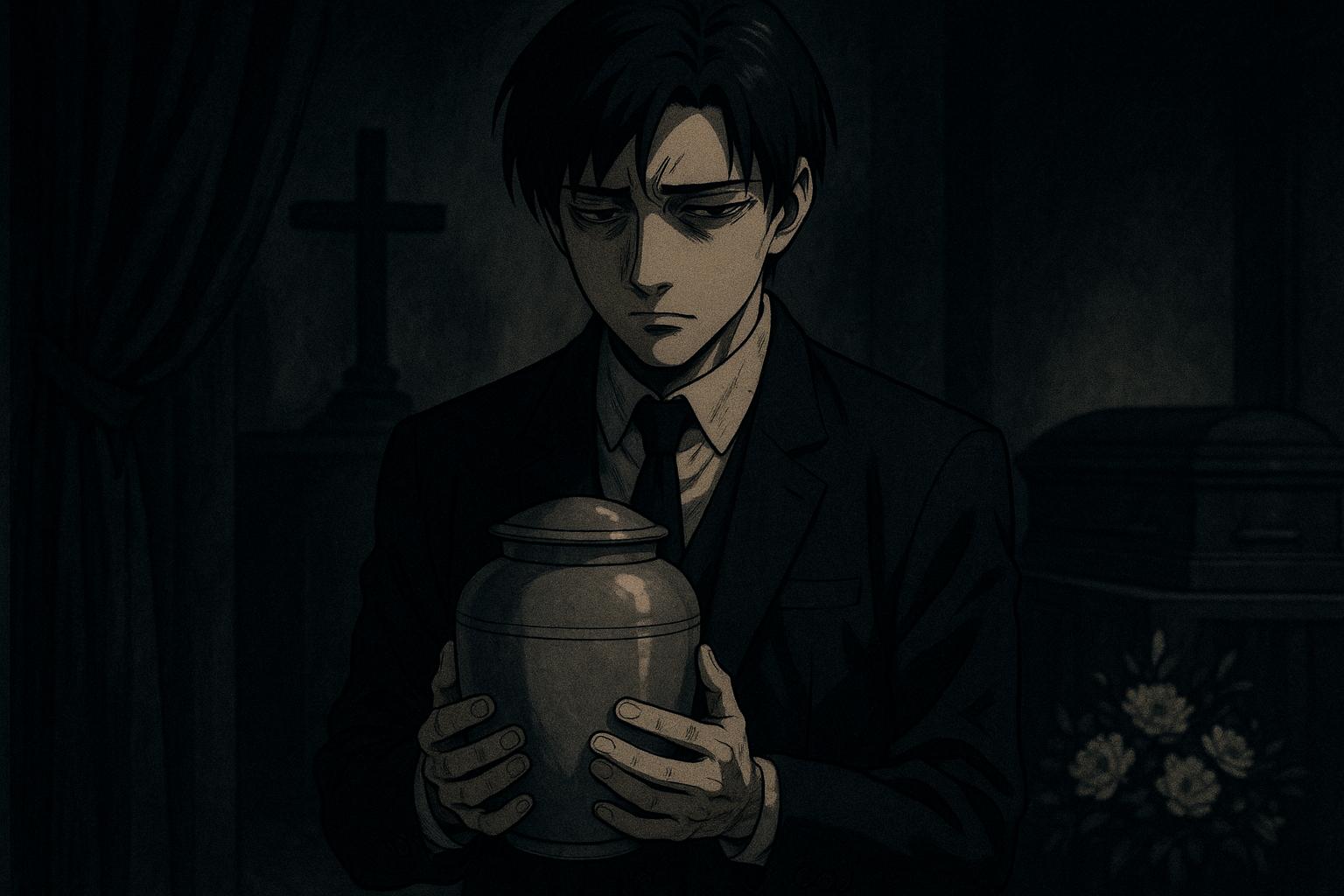In the stark landscape of documentary storytelling, "The Mortician," directed by Joshua Rofé, promises an unsettling yet revealing glimpse into the darker corners of the mortuary industry. Set against the backdrop of a shocking scandal involving the Lamb Funeral Home in Pasadena, California, the three-part series shines a light on the heinous practices of David Sconce, a co-proprietor who infamously transformed the funeral service into a business marked by deception, greed, and a blatant disregard for the dignity of the deceased.
Rofé’s documentary unfurls the grim narrative of Sconce’s operations during the 1980s, where mass cremations were conducted in a ceramics kiln, and where precious valuables—gold jewelry and dental fillings—were systematically plundered from corpses. Families seeking solace in their grief were instead met with a nightmare of receiving fake ashes, remnants not of their loved ones but rather of others lost in the commodification of death. The chilling scope of these practices forced a reckoning within the industry, prompting significant regulatory changes aimed at protecting consumers from such egregious violations.
The series deftly portrays Sconce as a malign force within an industry predominantly populated by conscientious practitioners, though it is important to acknowledge that the mortuary sector has seen troubling examples of malpractice beyond Sconce's reign of terror. Rofé points to recent incidents, such as the case of a Colorado funeral home owner who kept a corpse in a hearse for more than a year, highlighting a fragility in the trust placed in death care services. He notes, “People do fucked up things in every business in the name of money; but as it relates to the business of death, it becomes a bit more grotesque.”
Compounding the horror, Rofé includes an anecdote from Louis Quinones, a former worker at Sconce’s mortuary. In a profoundly disturbing revelation, Quinones unearthed the body of a baby, which he had unknowingly delivered as cremated remains to the grieving mother weeks earlier. Rofé describes this moment as “another level of depravity,” encapsulating the emotional and ethical violations that permeated Sconce’s operations.
The surge in Sconce's cremation business—from under 200 to over 25,000 cremations in just five years—was driven by aggressive pricing and a ruthless business strategy that prioritised profit over compassion. The daunting increase invited scrutiny from law enforcement, unveiling a web of illegal activities that not only capitalised on the deceased but also engaged in violent retaliations against competitors, as evidenced by reports detailing an incident in which Timothy Waters, a rival, was poisoned allegedly on Sconce's orders.
Sconce’s legal journey is one of both distressing and darkly compelling narratives. His conviction for numerous counts of malpractice came alongside allegations of conspiracy to commit murder that further intertwined his name with infamy. The unfolding of these events not only serves as a chilling case study in the exploitation of vulnerability but also as a catalyst for reform within the industry, leading to the implementation of laws aimed at preventing similar abuses.
In presenting Sconce’s starkly contradictory persona—where he adeptly deflects responsibility while openly rationalising his actions—Rofé captures the unsettling nature of his psyche. During a key interview, Sconce nonchalantly remarks, “To me, the commingling of ash is not a big deal,” underscoring a troubling detachment from the very essence of human connection that his profession ought to honour. Rofé's revelation that he was astounded by Sconce’s utterances serves to reinforce the overarching theme of disconnection between moral responsibility and the commercialisation of death.
"The Mortician," which draws stylistic inspiration from classic Los Angeles noir films, not only recounts a narrative marred by ethical breaches but also acts as a reflective commentary on humanity’s relationship with death. This powerful exposé, set to debut soon, ensures that the voices of those wronged by Sconce’s practices are heard, prompting viewers to reconsider their own perceptions of mortality and the systems designed to honour it.
As audiences brace themselves for the series, Rofé’s exploration serves as a poignant reminder of the fragility of trust in the mortuary industry, urging a collective vigilance against the potential for abuse that lurks even in the most sacred moments of life and death.
Reference Map:
- Paragraph 1 – [1], [2]
- Paragraph 2 – [1], [5]
- Paragraph 3 – [6], [4]
- Paragraph 4 – [3], [6]
- Paragraph 5 – [1], [2], [5]
Source: Noah Wire Services
